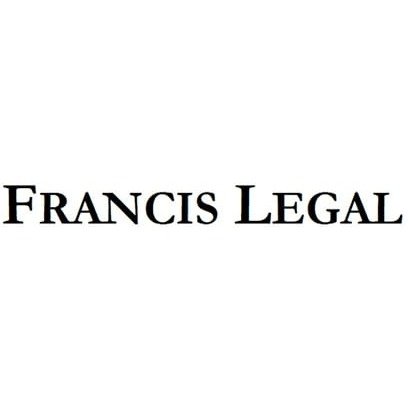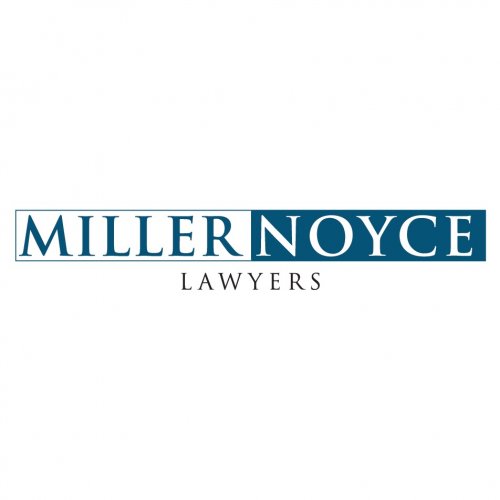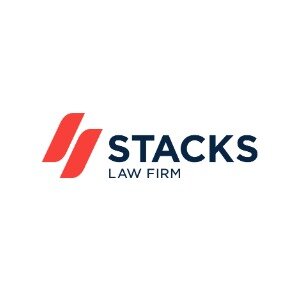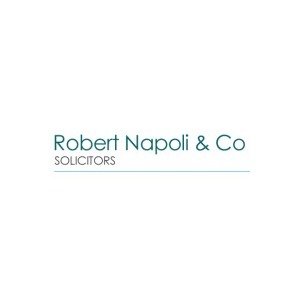Best Conveyancing Lawyers in Hornsby
Share your needs with us, get contacted by law firms.
Free. Takes 2 min.
Free Guide to Hiring a Real Estate Lawyer
List of the best lawyers in Hornsby, Australia
About Conveyancing Law in Hornsby, Australia
Conveyancing refers to the legal process involved in transferring property ownership from one person or entity to another. In Hornsby, as with the rest of New South Wales, conveyancing ensures that property transactions, whether buying, selling, or subdividing land, are completed according to local and state laws. The process involves a series of steps including preparing, verifying, and lodging legal documents, conducting searches, handling settlements, and ensuring all duties and taxes are paid. Using a qualified conveyancer or property lawyer ensures your rights are protected throughout the transaction in Hornsby’s dynamic property market.
Why You May Need a Lawyer
Many people in Hornsby seek legal assistance for conveyancing due to the complexity of property laws and the high financial stakes involved. Common situations requiring a lawyer include buying or selling a residential or commercial property, subdividing or amalgamating land, transferring property due to separation or inheritance, or dealing with disputes over boundaries. Legal professionals can identify contract risks, ensure all disclosures are made, clarify your obligations, and handle complications such as those involving easements, covenants, or restrictions affecting the title. If you are new to property transactions in New South Wales, having a lawyer can provide peace of mind and safeguard your financial interests.
Local Laws Overview
In Hornsby, conveyancing must comply with NSW legislation such as the Conveyancing Act 1919, Real Property Act 1900, and relevant local council requirements. All property transactions must adhere to strict timelines and disclosure obligations. Vendors are required to provide a contract for sale containing prescribed documents before listing a property. The NSW Land Registry Services manages property titles, and most settlements are completed electronically via the PEXA platform. Additionally, Hornsby Shire Council has specific requirements for zoning, development applications, and compliance certificates which may affect a transaction. Stamp duty, capital gains tax, and other financial considerations are governed by state law, but local regulations may also impact property use and value.
Frequently Asked Questions
What does a conveyancer do during a property transaction?
A conveyancer manages the legal and administrative tasks involved in transferring property. This includes preparing and reviewing contracts, checking title and planning restrictions, coordinating with banks, arranging settlement, and ensuring that transfer documents are lodged efficiently.
Do I need a lawyer or can I just use a conveyancer?
Both conveyancers and lawyers can handle most property transactions, but a lawyer can provide legal advice about complex issues, help resolve disputes, and represent you in court if necessary. For straightforward sales, a licensed conveyancer may be sufficient.
How long does conveyancing usually take in Hornsby?
The process typically takes between 4 to 8 weeks, depending on the complexity of the transaction, contract negotiations, finance approvals, and the specifics of property or title searches.
What searches are usually done during conveyancing?
Standard searches include title searches, land tax certificates, council zoning and planning certificates, building compliance certificates, and utility search reports. These help uncover any issues affecting the property.
What is 'exchange of contracts' and why is it important?
Exchange of contracts is the formal stage when both seller and buyer sign and swap contracts, and a deposit is paid. At this point, the sale becomes legally binding and both parties commit to the transaction.
What happens at settlement?
At settlement, the balance of the purchase price is paid, legal ownership transfers to the buyer, and all adjustments for rates and taxes are finalised. Keys are typically handed over after settlement is complete.
Are there any risks involved in DIY conveyancing?
DIY conveyancing can result in legal and financial pitfalls such as missed deadlines, overlooked property defects, or incomplete documentation. Professional guidance reduces these risks significantly.
How does stamp duty work in NSW?
Stamp duty is a government tax applied to property transfers, calculated based on the price paid or the property’s market value. In NSW, it must be paid within three months of signing the contract, or penalties apply.
Can I back out after exchanging contracts?
Once contracts are exchanged, buyers usually have a cooling-off period of five business days in most residential purchases, but sellers do not. After that, backing out can lead to financial penalties or loss of your deposit.
What should I do if a property has adverse findings in a title search?
Seek legal advice immediately. Issues like caveats, unregistered interests, easements, or non-compliant structures may affect your decision to proceed or require rectification before completion.
Additional Resources
For further information or assistance on property conveyancing in Hornsby, the following resources may be helpful:
- NSW Fair Trading: For consumer information and conveyancer licensing
- NSW Land Registry Services: For land title and property information
- Hornsby Shire Council: For local development controls, zoning, and compliance queries
- Law Society of NSW: For finding local solicitors and general advice on property law
- Australian Institute of Conveyancers NSW Division: For finding licensed conveyancers
Next Steps
If you are considering a property transaction in Hornsby or have encountered issues in an ongoing deal, you should:
- Start by gathering relevant documents such as the contract for sale, identification records, and property certificates
- Contact a qualified conveyancer or property lawyer with experience in the Hornsby area
- Arrange an initial consultation to discuss your needs, potential risks, and expected costs
- Do not sign any contract or pay any deposit until your legal representative has reviewed all documents and advised you on the implications
- Stay informed throughout the process by asking questions and requesting updates from your legal adviser
Taking these steps will help ensure a smooth and secure conveyancing experience in Hornsby, Australia.
Lawzana helps you find the best lawyers and law firms in Hornsby through a curated and pre-screened list of qualified legal professionals. Our platform offers rankings and detailed profiles of attorneys and law firms, allowing you to compare based on practice areas, including Conveyancing, experience, and client feedback.
Each profile includes a description of the firm's areas of practice, client reviews, team members and partners, year of establishment, spoken languages, office locations, contact information, social media presence, and any published articles or resources. Most firms on our platform speak English and are experienced in both local and international legal matters.
Get a quote from top-rated law firms in Hornsby, Australia — quickly, securely, and without unnecessary hassle.
Disclaimer:
The information provided on this page is for general informational purposes only and does not constitute legal advice. While we strive to ensure the accuracy and relevance of the content, legal information may change over time, and interpretations of the law can vary. You should always consult with a qualified legal professional for advice specific to your situation.
We disclaim all liability for actions taken or not taken based on the content of this page. If you believe any information is incorrect or outdated, please contact us, and we will review and update it where appropriate.











